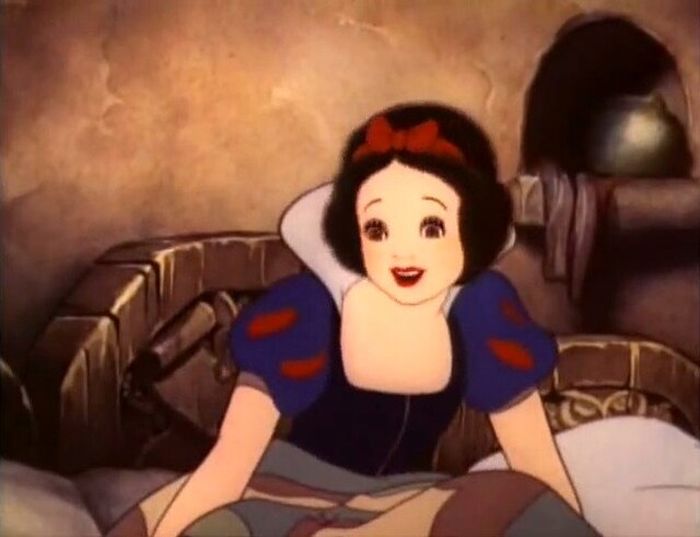Reviewing Reagan
Reagan exposes the unprecedentedly large gulf that has formed between the critic and the audience, argues Xin Shackleton

It doesn’t take a long look at the Rotten Tomatoes site for Reagan (2024) – the new biographical film released last Thursday depicting the story of the 40th President of the United States starring Dennis Quaid – to see what’s going on there. Reagan earns a “rotten” 20 percent on the ‘Tomatometer’, a number aggregated from the scores of 47 professional critics, while the audience-reported ‘Popcornmeter’, based on more than 2,500 independent, verified ratings skyrockets the film to a certified “fresh” 98 percent. In doing so, Reagan overtakes Boondock Saints (1999) in setting the bar for the largest difference between the two metrics, which previously held it with a difference of 65. Cinema has always been dividing audiences since its inception, yet with Reagan it is, quite literally and measurably, unprecedented.
“The answer, for better or for worse, can be found more outside the cinema screen than within”
For as long as the two have been around and interacted, the film critic and the person-in-the-cinema have always had times of division. Green Book (2018), Crash (2004) and even 2001: A Space Odyssey (1968) all famously divided audiences and critics alike upon release. And films in turn have been all too aware of the difficulties in attempting to appease the often very different expectations between the two groups. I am quickly reminded of Birdman’s (2015) nearly 3-minute invective against the Critic as an institution, which may as well have come straight from director Alejandro Iñárritu’s mouth as it did from his character-surrogate.
Films that cover politics are even more vulnerable to causing division, being essentially inherent to sparking controversy. Politics is already the human attempt to explain the problems of the day, and films about politics are the human attempt to explain the story of the people who explain the problems. Any director can’t help but thus bring in their own biases, judgements and perspective when creating a politically charged piece of media, just as we the audience also can’t help but bring in our own pre-determined assumptions and ideologies about ‘how the world works’. Reviews around these films are always going to differ, just as they always have done, and will continue to do so. The Iron Lady (2011) for example, is often criticised for having sugar-coated the premiership of Margret Thatcher, specifically its portrayal of the build-up to the Falklands War, yet it is equally held up by some as a justified narrative of Britain’s first female Prime Minister.
The question here is less how the same piece of media can illicit such opposing reactions between two very defined categories of people, and more why a film like Reagan is doing the rounds right now, and at such an extreme. The answer, for better or for worse, can be found more outside the cinema screen than within.
Reagan releases into a cultural atmosphere where we, as humans, are increasingly able to choose the reality we want to believe in. Social media, the age of Trump and finger-tip misinformation, aided by the arrival of AI, have collided with our post-9/11 world at velocity to produce this new, dangerous post-truth era. At the centre of the division between the critics and the audience is the question of historical fact, and how the film treats its subject matter: the very real, very consequential 40th President of the very important United States. What the film professes as the ‘truth’ will have implications for millions, if not billions, and inevitably challenge and test both the audiences’ and critics’ personal grasps on political reality. Their subsequent opinions of the film are perhaps more a reflection of their response to the specific narrative being strung about the political figure.
“this type of film is quickly manifesting itself into the strongest form of propaganda we currently have out our disposal”
Yet, this too, is also nothing new. Anyone with a baseline cognisance of geo-political affairs can tell you Ronald Reagan was and remains controversial, and depending on which biography you read it is not difficult to find oscillating verdicts on his presidency. But, whereas hitherto such discussions existed as differences in academic opinion, their foray into the moving picture format has made them into ‘fictional realties’. Just as there’s probably some alternate timeline in the Marvel universe where Batman is actually indeed Superman, there is now an onscreen world where Ronald Reagan, the man who made light of the AIDs crisis and greatly intensified the 'War on Drugs', is the omni-benevolent, charming, force-for-good President, whose policies advanced the cause of the United States, and where he in turn became a champion of liberal democracy.
And never before has it been so easy to buy into it, as supporters of his have clearly done, ensuring that a film based on the events of his presidency is likewise positively reviewed just as they would his actual terms as President. If to E.H Carr the historian was one who went to fish market and picked and chose their facts to bring home and cook, we are today spoiled with a multi-cuisine buffet that caters not to any form of historical integrity, but to individuals’ personal tastes and preferences.
The danger of a film like Reagan is that you don’t have to be an ‘idiot’ to believe the story it tells. That’s the whole point. We as the audience often impart a degree of trust into whatever medium we’re experiencing a story through, especially if it purports itself to be a political (i.e. historical) one. However, in a post-truth era no longer is that trust cared for, to the extent that it wouldn’t be so radical to suggest that this type of film is quickly manifesting itself into the strongest form of propaganda we currently have out our disposal.
No one will deny Hollywood is left leaning, and to an extent always has been – just ask the titular character of the film in question – and I doubt anyone is really surprised to see established critics bomb a film that lionises a hero of the conservative right. Likewise, when we turn to the public, the voices that stand in line to benefit from a positive tale of the 40th President shower the film in praise and bravery. It is therefore the reaction to the political messaging of the film that is fuelling the critic/audience divide, rather than the film itself.
“Depending on the political leaning of the viewer, Reagan is either a post-truth masterpiece or a neo-liberal fantasy”
Objectively, i.e. from a film-making perspective, Reagan is a terrible film – poorly paced, bland cinematography, structurally bereft and contains some of the worst dialogue you’ll hear all year – but so was The Iron Lady, and really, all other political-biopics. Yet, releasing one now causes unprecedented division and reflects a world where we've moved from differing opinions to differing realities. Depending on the political leaning of the viewer, Reagan is either a post-truth masterpiece or a neo-liberal fantasy.
Acknowledging the existence of that discrepancy is perhaps the only discernible truth we can pull from watching Reagan. The Apprentice (2024) which releases this October, will give the same treatment to Trump, a man whose relationship with the truth is practically non-existent, and depending on whichever fictional reality of his the American people believe in, may have damning ramifications for the stability of their democracy come November.
But is this really so surprising? After all, we are talking about Ronald Reagan, the man whose heart and best intentions told him during the Iran-Contra affair that he did not indeed sell arms for hostages, even though the facts and evidence told him he had. I just hope, like his economic policy, this sentiment towards other genres of films doesn’t trickle down.
 News / Colleges charge different rents for the same Castle Street accommodation2 March 2026
News / Colleges charge different rents for the same Castle Street accommodation2 March 2026 News / News in Brief: waterworks, wine woes, and workplace wins 1 March 2026
News / News in Brief: waterworks, wine woes, and workplace wins 1 March 2026 News / Climate activists protest for ‘ethical careers policy’1 March 2026
News / Climate activists protest for ‘ethical careers policy’1 March 2026 News / Angela Merkel among Cambridge honorary degree nominees27 February 2026
News / Angela Merkel among Cambridge honorary degree nominees27 February 2026 News / Private school teacher who lied about Cambridge degree barred from teaching27 February 2026
News / Private school teacher who lied about Cambridge degree barred from teaching27 February 2026










